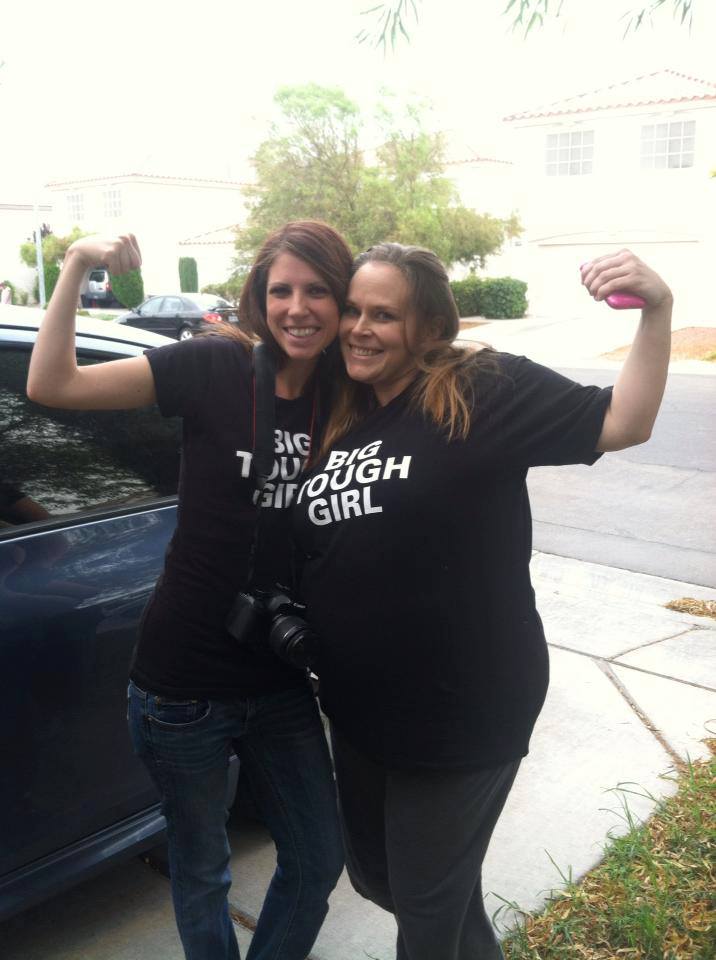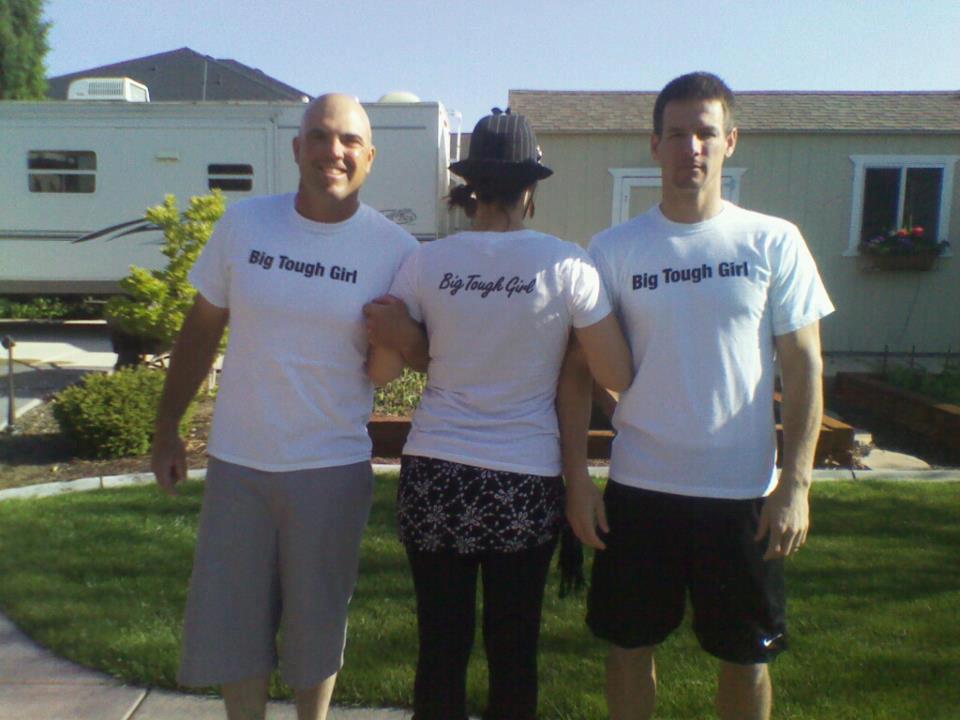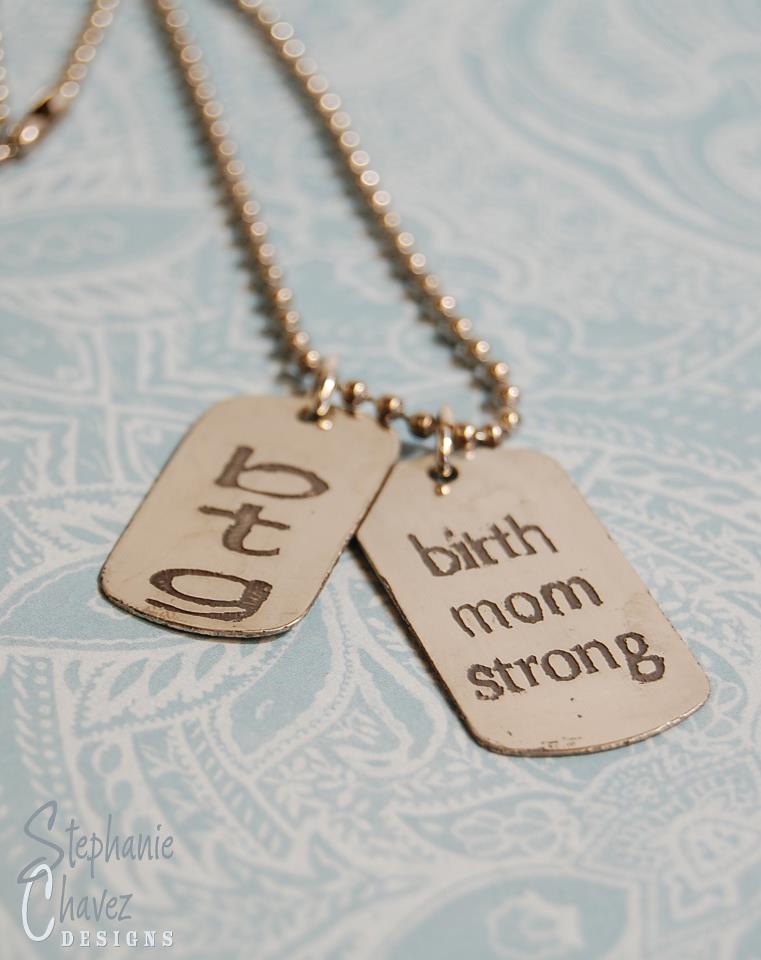 Placing a baby for adoption is often called the ultimate sacrifice. It’s also one of the loneliest.
Placing a baby for adoption is often called the ultimate sacrifice. It’s also one of the loneliest.
Few experiences in life can compare with the heartbreak of coming home from the hospital empty-handed after carrying a baby for nine months.
Ashley Mitchell knows the feeling. Seven years ago she placed her baby for adoption and struggled through all of the ups and downs that came with it.
Today, the married Springville, Utah mother of two runs Blessings in A Basket, a non-profit organization aimed at helping birth mothers deal with their pain and loss and find peace and comfort following their placements.
Recently I had the opportunity to speak to Ashley — who has shared her story and, most recently, here — about birth mother grief, healing and community-building; about what expectant mothers need to know before and after relinquishing their baby; and about how she sees her role as an open adoption “truth-teller.”
1. How did you get the idea for Blessings in A Basket?
 Seven years ago I placed a baby boy for adoption. When I came home from the hospital I had nothing. I was so alone — really, the past nine months had been all about the baby and the adoptive parents.
Seven years ago I placed a baby boy for adoption. When I came home from the hospital I had nothing. I was so alone — really, the past nine months had been all about the baby and the adoptive parents.
As I looked around my room at the stuff that was returned to me from the hospital there was a humble basket sitting on my bed. It was from an anonymous group of women, a church group maybe. There was nothing much in it but it was ALL for me and that was everything. BIB was born at that moment but it was years before it was created and put into motion.
2. Tell me a little bit about how it works…
BIB has evolved so much over the past three years. We are grafting lives together through our birth mom community. Basically we are reaching out to birth moms nationwide through placement baskets, daily and monthly support groups, our annual cruise retreat, community events and more. We are providing a safe place for them to come, learn, heal and live their life after placement.
3. What about Big Tough Girl — talk to me about how that got started and about the five things that qualify a birth mother or anyone else to become a BTG?
BTG! I have an amazing mother and sister. Between the three of us we have experienced our fair share of heartache and trials. We always comfort each other with the term “Big Tough Girl.”
 “Remember, you are a big tough girl.” I heard that on a daily basis during my pregnancy and post placement. As my journey to create BIB really started I knew that I was a “self-proclaimed big, tough girl” and so the title has been passed on to not just birth moms but all the amazing women that journey this life, struggle and survive.
“Remember, you are a big tough girl.” I heard that on a daily basis during my pregnancy and post placement. As my journey to create BIB really started I knew that I was a “self-proclaimed big, tough girl” and so the title has been passed on to not just birth moms but all the amazing women that journey this life, struggle and survive.
Adoption is really about survival. As women in adoption we go through so much. So much waiting and wondering, build up and let down. Emotional and physical pain, test of faith and hope, test of true character and integrity.
It is not an easy thing to be a woman of adoption. We believe that there are many things that qualifies you as a BTG but we focus a lot on five: own your story, you do it anyway, you rise above, you love with a pure heart, you know you can’t do it alone.
4. What kind of difference have BIB and BTG made in birth mothers’ lives. Can you tell me about some of the stories you’ve heard from women you’ve helped?
I truly feel that we have created something different with BIB, something special. There are amazing organizations out there that we love and support but we really feel that we are providing something a little extra. We are offering women a chance to truly see their worth, to accept who they are and wear their birth mom title proudly but to also understand that it is not all that we are.
 We have so much life to live after placement and we are here to encourage forward movement as we work through the grieving process. We are not just a community of birth moms, we are a community of women. Married, divorced, single, students, worker bees, stay-at-home moms, active community members, church goers you name it.
We have so much life to live after placement and we are here to encourage forward movement as we work through the grieving process. We are not just a community of birth moms, we are a community of women. Married, divorced, single, students, worker bees, stay-at-home moms, active community members, church goers you name it.
We are not just birth moms and we are providing a space to live whatever life awaits you as a woman, birth mom and all. I could go on and on with emails and letters and thank you’s from the women of our humble community but I think our love, passion, actions and support of the birth mom speaks for them.
5. Speaking of the grieving process, do you think birth mothers underestimate the feelings of pain and loss they encounter after a placement?
Absolutely. One of the things that has been so special for our group is that we have had the chance to have pregnant women planning to place in our group and they have had the chance to sit back and listen to women that have been through the process, that have survived it, the good, bad and the ugly. There isn’t anything that can prepare you for what is going to happen after placement, but we do our best to educate.
6. You mentioned that things tend to get harder before they get better after a placement. Is that your personal experience of it or do you think that goes for everyone?
 I think that in general that is the process. I think that women go through a numb period, the first six months we are so relieved to not be pregnant any more, to have the questions stop, we are feeling better physically and we are anxious to get back to life.
I think that in general that is the process. I think that women go through a numb period, the first six months we are so relieved to not be pregnant any more, to have the questions stop, we are feeling better physically and we are anxious to get back to life.
What happens is life hits you like a brick wall and that is when the true pain is recognized and the healing process starts or is ignored and the downward spiral starts. It varies from birth mom to birth mom. I have seen some amazing women come through our community that are hammering through it and dealing with their pain in their first year, some 10+ years later. It is an amazing thing to see.
7. Sharing your story is a big part of BTG. How important is that in the grieving process?
We preach OWN YOUR STORY daily to the birth moms of our community. Why? Because without acknowledgement of what has happened, what you have been through, without taking your share of the responsibility for your actions you live in denial and pain and anger and blame.
In order to heal you have to have acceptance. They always say that acceptance is the last stage in the grieving process.
At BIB we believe that it is the first step. Reclaim your integrity, own who you are, recognizing your life choices, accepting the lessons that they have taught, learning to break the cycles, these are all vital to starting the grieving process. Own who you are, own what you have experienced, don’t hide in shame and move forward.
8. How important is joining in the birth mother community for a birth mom?
I truly believe that you cannot survive great loss, sickness, change without a support system. One of the reasons that BIB has become so special is the community. We are truly family. I hear on a daily basis “I wish I would have had a group like this when I placed, things could have been different for me”.
More and more women are coming to us years after placement, looking for a place to finally open up, to find others that understand, and to get out from under the pain that has crushed them for so many years.
It is such a beautiful thing to see women come together, from all walks of life, share their stories and grow heart in heart. To quote one of our BTG’s “Not every adoption is the same; we all have different feelings but being in a group with all Birth Mothers we share one thing in common– the greatest gift of life that we have given to another family.
I have learned that no Birth Mother can do this alone. You need to have a group of people that have walked the same path you are on to talk to and to work through emotions and feelings that you are going through. There are days that I’m not the strongest and I need support and the Blessings in a Basket family is there for me.”
9. What’s the key to healing?
If we knew that we would not need our group! LOL. I truly believe that healing is possible for everyone. But it looks different to everyone and it comes at a different time and pace for everyone. Embrace the emotions, the changes, the steps forward and the falls backward, keep the faith, do the work and look for the miracles, wait for the light to turn on and hold on for dear life.
10. An expectant mother reading this may think, “Hey, this is too much for me. I can’t handle all that pain and negativity. I’m rethinking my plan.” What’s your message to her — how does an expectant mother know if adoption is right for her?
As a birth mother myself and knowing all that she is going through I would never try and say “adoption is the best and only option, stick with it, it will all be fine”. I do not believe that adoption is the easy choice.
One thing I have learned is that my role includes being a truth teller. That has earned me many fans and many enemies. I never sugar coat the realities as I feel that it is all about education and a choice like this needs to be examined from all aspects.
I can promise you that I changed my mind many times during the process, I went for an abortion and I questioned my decisions daily. It is the worst, most horrible, wonderful, beautiful, hurtful, painful, miraculous thing that I have ever done.
All you can do is get quiet. Listen to your truth-teller, whatever that looks like to you. Sit and really ask yourself the hard questions, be selfish and be honest with yourself. At the end of the day, what is the very best decision with your current situation and the facts that you have been given? Trust that and don’t look back.
11. What’s the most important thing an expectant mom needs to do to prepare herself emotionally and mentally for a placement?
There really isn’t anything that you can do to be totally prepared but it is incredibly helpful to talk to those that have been through it. Educate yourself. Have a counselor/lawyer/caseworker go through the paper work with you in great detail before you are in the hospital. Take the time to ask questions and truly gain an understanding of what it means to sign over your parental rights.
I promise you, you won’t hear a word of it at the time of signing so make sure YOU care enough to understand what is happening. It will help to find some peace if you have asked all the questions you can.
12. What’s the most important thing she needs to do right after?
Take time to heal physically; don’t rush jumping back in to life. Don’t ignore what has just happened. Rest, you have many years of battle ahead of you and you will need it.
Ashley Mitchell is a thirty something self-proclaimed Big Tough Girl™. She is married to the love of her life in Utah, parenting two children and is a Birth Mother in an open adoption to one. She is nationally known for her speaking, writing and advocacy work for adoption as well as her work in women support and parent advocacy all around the country.
Do you have a birthmother or open adoption story? Email us or learn more about how to share it with our community.
Help us remove the stigma surrounding birthmothers and open adoption. Like us on Facebook.
